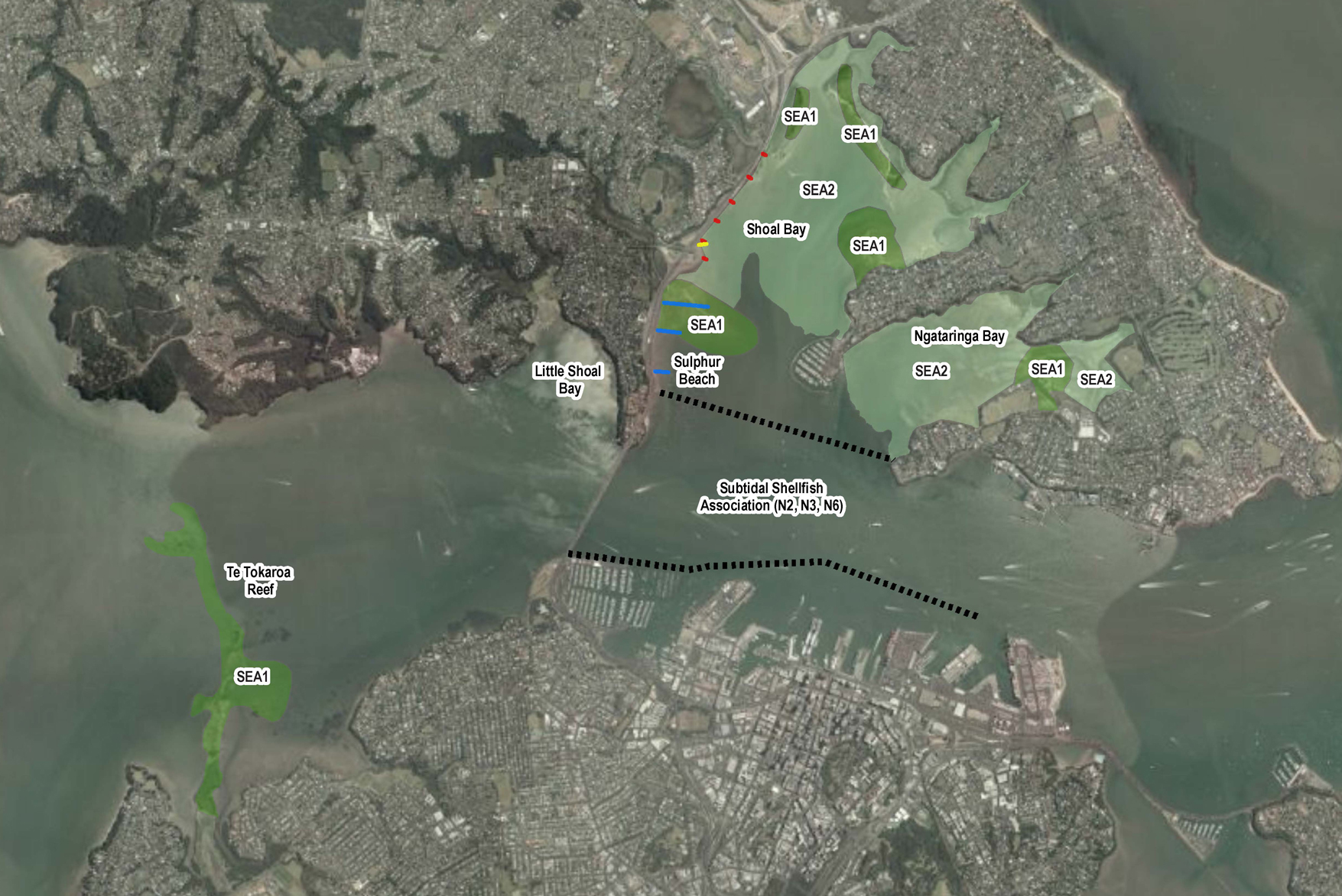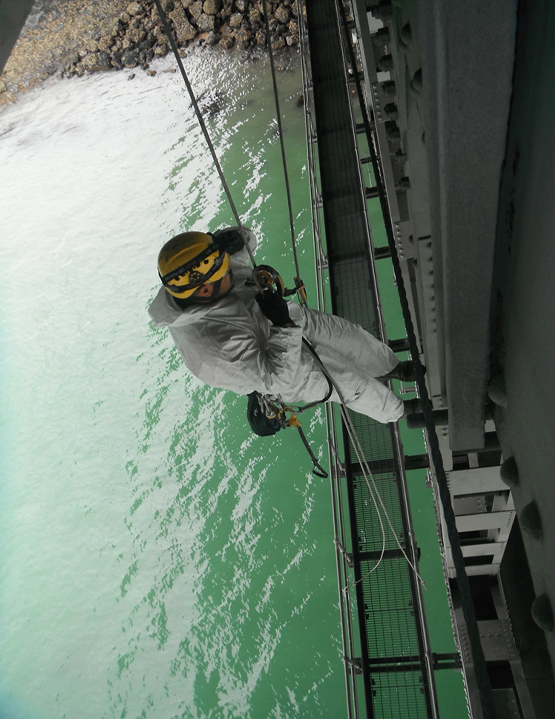Being a predominantly steel structure, the Auckland Harbour Bridge requires continual maintenance over an area of 125,000m2, with about 10% of the bridge undergoing maintenance each year. Maintenance of the surface of the bridge results in various contaminants entering the marine environment. Maintenance activities include water jetting, wet and dry abrasive blasting, application of coatings (primers, rust inhibitors and paints) and minor structural works such as metal welding and concreting. Discharge of various contaminants from these maintenance activities occurs to air, marine waters and the surrounding land and requires resource consent under the New Zealand Government 1991, Resource Management Act (RMA).
Our ecology team assessed the effects of these various contaminants on the marine environment, as part of the development of a consenting framework.
The previous consent process limited the use of innovative and environmentally friendly methods of bridge maintenance. The Auckland Harbour Bridge Alliance formed a multi-disciplinary team to create a flexible consenting framework that focuses on outcomes as opposed to prescribing methods while retaining a high level of environmental success. The integrated team of experts from planning, science and operations led to the development of a regime that enables operators to adopt new and innovative methods while improving performance outcomes.
When the project was completed in 2015, it was estimated that the adaptive management framework would save the NZ Transport Agency around $65 million over the next 10 years.

